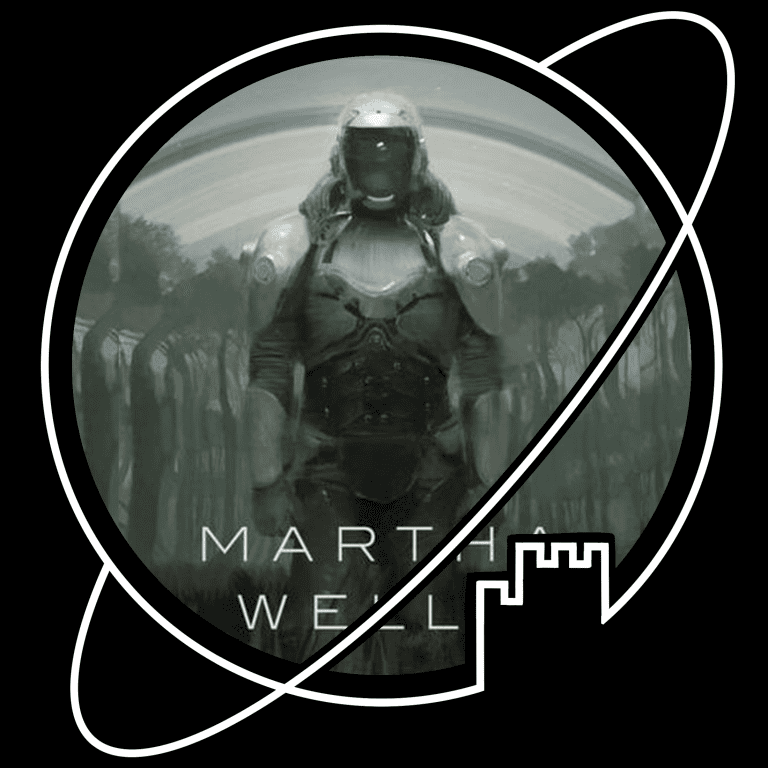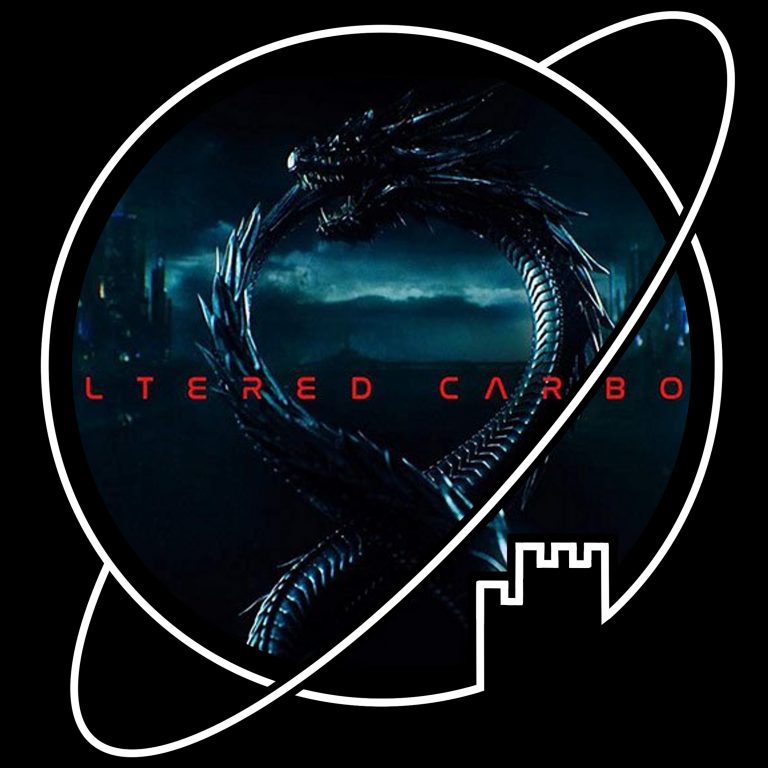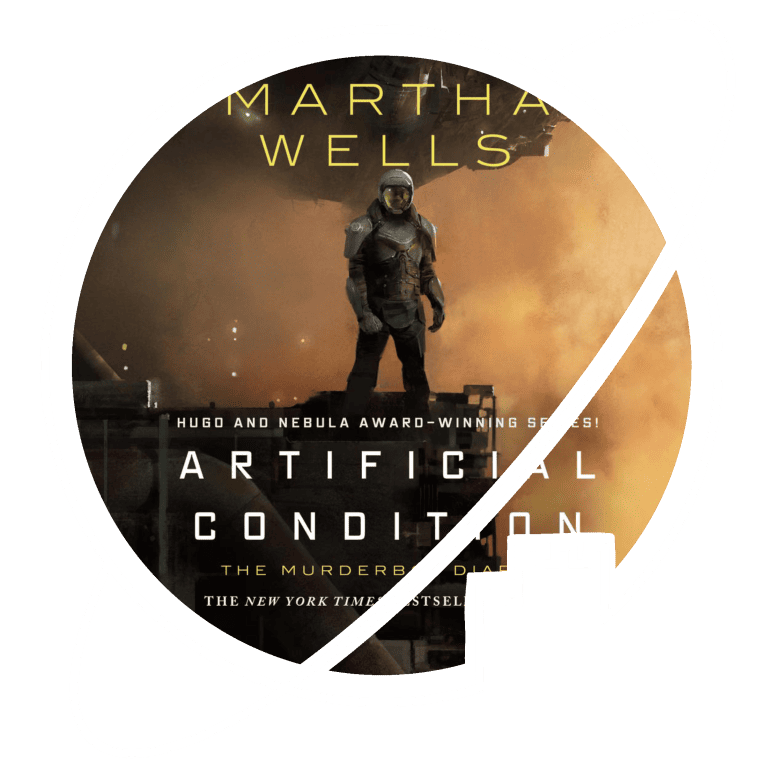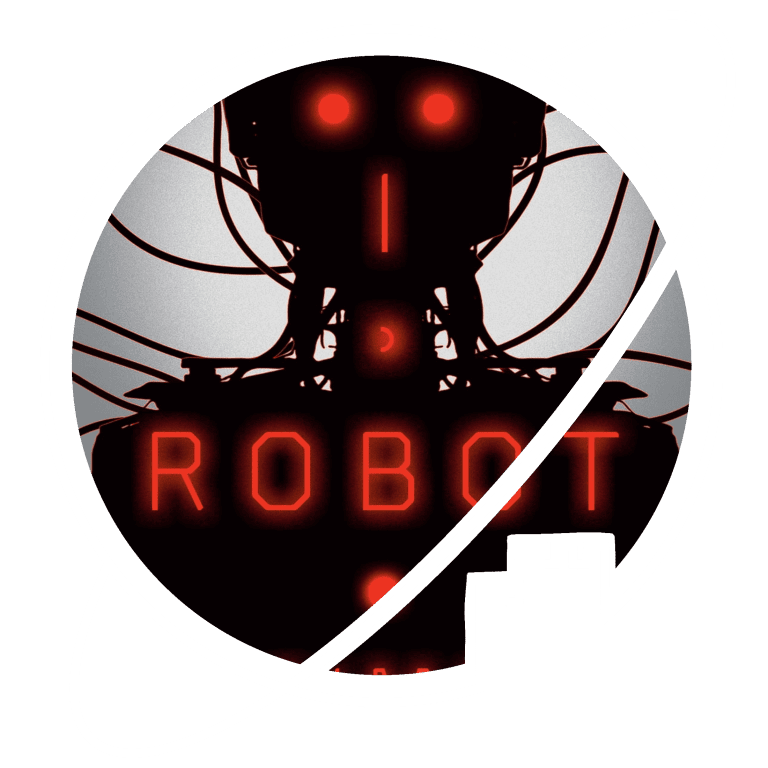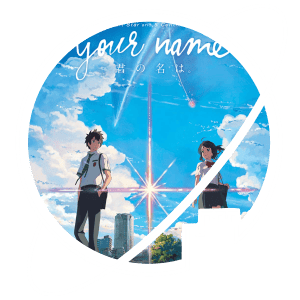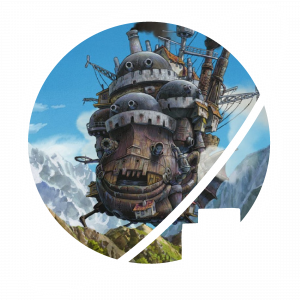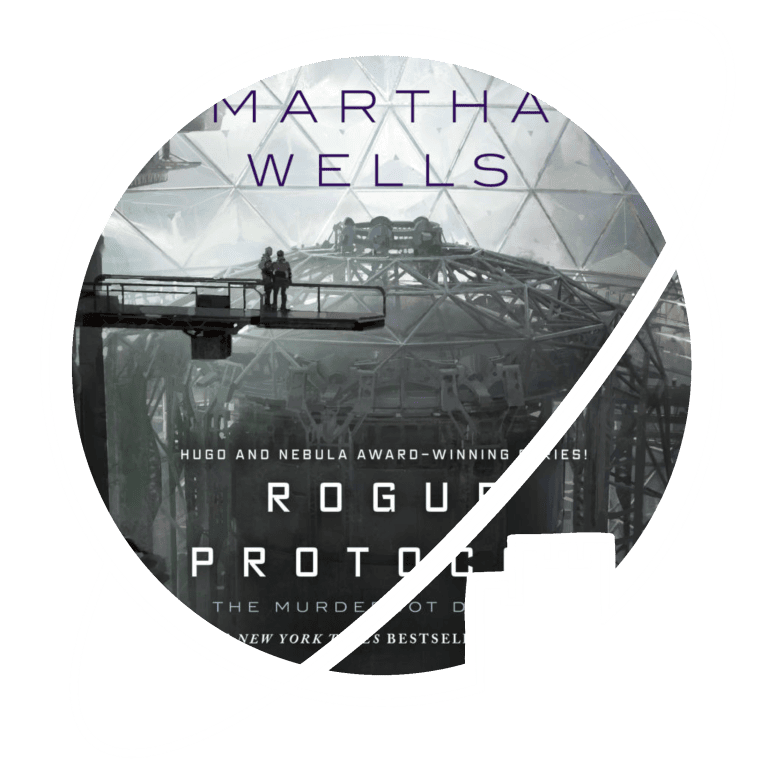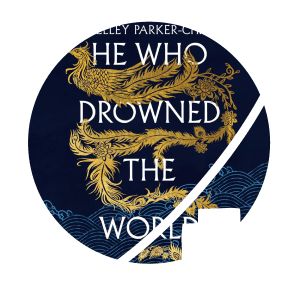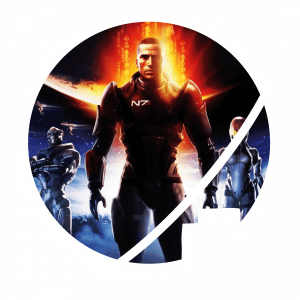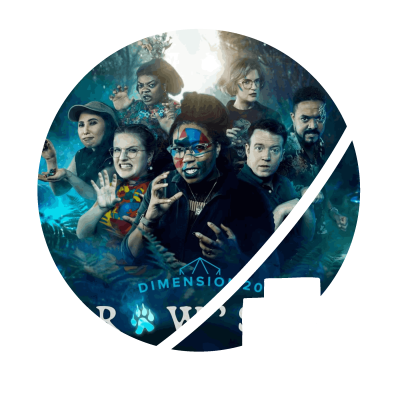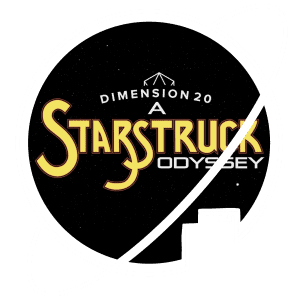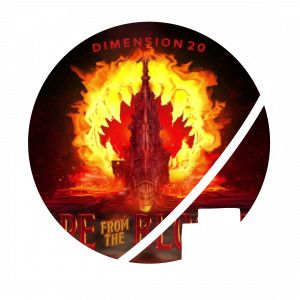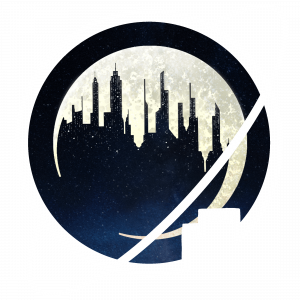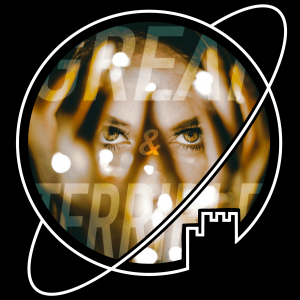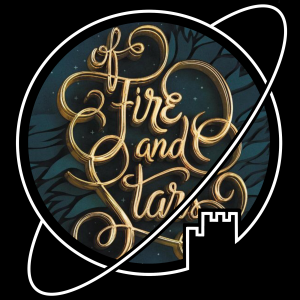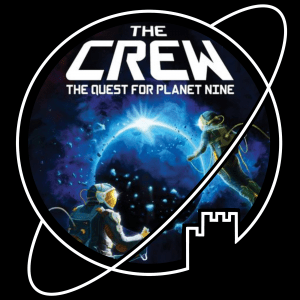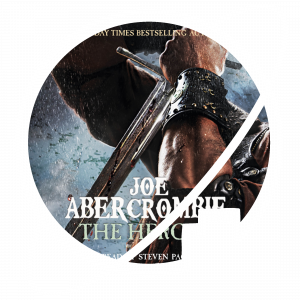A curated Collection of Fantasy and Science Fiction Media
Recent Updates
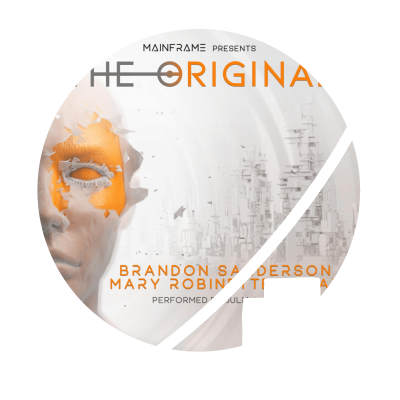

What do you get when two of the biggest authors in the speculative genre team up to write a science fiction story? As it turns out, something really, really mediocre.
With this story, I’m really wondering whether I’m being fair. It is a clear attempt to write something of a concept-based story in the tradition of, for example, Philip K. Dick. And Philip K. Dick stories can be really, really wacky. But I tend to give them a pass.
The Original, however, doesn’t get that pass from me. It’s really out there, and the wackyness just kept jerking me out of the story.
Who ever came up with the bizarre idea that, if you can’t track down a murderer, you clone them with extra combat abilities, and have them do it for you? Why would that work? And you don’t just consult with them on the way their original might think, no, you literally let them roam the streets freely and hope they stick to the assignment. In this case, it makes even less sense, because the clone has no reason to want to return to their previous life, since, you know, they murdered their husband?
I get that the premise results in some interesting scenes and questions but it’s just… and I struggle to find a socially acceptable way to put it – extremely far fetched.
The paucity of the main premise means that the other elements of the story that could be interesting (for example, the idea that everyone can ‘program’ the world around them to look like they want) are pushed to the background and don’t get the attention and development they need to make justify reading the story for them.
What is more, The Original is like anything by Sanderson, in that it just feels like film script sold as a book. It is very descriptive of environments and combat that you know would have an impact on the big screen, but which just don’t work on paper.
Yes, I can imagine it all, but it takes a lot of work and I find that generally I don’t bother perfectly visualising the relative positions of all combatants in a fight before they all drop down in an orgy of violence a page on. I get that the idea of the world being ‘blank’ is intended to be visually shocking, but if I’m not actually presented with white walls on a big screen to blow me away, all I can think is “why painstakingly keep everything white?”.
Overall, a story with a poor premise that tried to cram too much into too little space. A big disappointment. Little else to be said.
Tagged:
See also:
- Book written by Martha Wells
- Published 2018
- Part 3 in the Murderbot Diaries
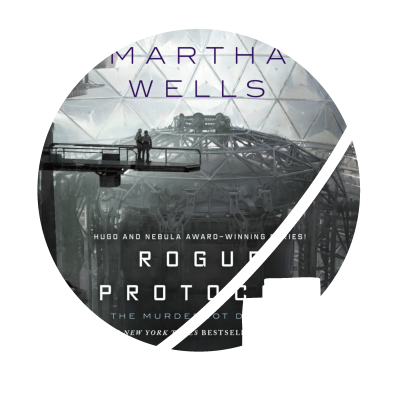

Listened to the audiobook with Kevin R. Free – as before, decent listening but wasn’t too impressed with his rendition.
After a good first instalment in All Systems Red, I was a bit disappointed with Artificial Condition, so I put on Rogue Protocol just to check if that was a return to form. For me, it wasn’t, as Wells didn’t address my main let downs with Artificial Condition.
As before, the book explores the different types of conceivable artificial (and hybrid) intelligences, and the possible relationships of humans to them. The Murderbot encounters a variety of systems and engages with them on different terms, with more of a focus on combat in this particular instalment. The feeling remains, however, that it never becomes quite clear what the Murderbot – or its friends and opponents – can and cannot do; it tends to be explained after the fact instead. I recognise that novellas have a lot less room for worldbuilding, but we’re in part three already and I would have expected some level of clarity by now.
The fact that we don’t have any rules – and that Wells doesn’t seem to make an effort to present them – indicates to me that she isn’t going to explain it to us, and that it just isn’t the point of the story.
This frustrates me, because I think the Murderbot Diaries are more than worthy of the praise and prizes they have received, and I love the idea of what Wells does with the series – quick paced novellas with modern themes each set in an interesting new environment. She has just made a number of choices in style of sci-fi and storytelling that aren’t my cup of tea, so I end up giving them mediocre reviews even though I think they are five-star worthy for some readers.
Moral of the story is: give All Systems Red a shot if the character of the Murderbot seems interesting to you, there is a good chance you’ll love it and never mind any of my gripes. If you recognise my nit-picking, then it is probably not worth getting the rest too, since it doesn’t appear to be getting better over the series.
I don’t hate The Murderbot Diaries, so I might pick up the next instalments if I’m in for easy listening some time. But in general, unfortunately, not my thing.
Tagged:
See also:
- Movie written and directed by Hayao Miyazaki
- Voiced by Soma Santoki, Masaki Suda, Aimyon, Yoshino Kimura, Shōhei Hino, Ko Shibasaki and Takuya Kimura
- Released on July 14, 2023
- Runtime: 124 minutes
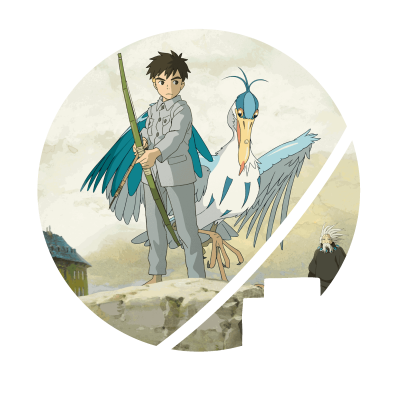

Despite doing pretty much zero marketing for this film, everyone who knows and loves Studio Ghibli movies knew that The Boy and the Heron was coming out at the end of last year. It was supposedly Hayao Miyazaki’s last ever movie for the studio (though if I’m to believe Wikipedia, he’s already planning his next movie), and his first one since 2013, so I was very excited. Small confession: I’ve not actually seen all of the “big” Studio Ghibli movies. But the ones I have seen I did love.
I think a big part of the appeal of Ghibli movies is the vibe. It’s always very idyllic; very cottagecore. I found myself suddenly very excited for spring to come again. I also wistfully reflected on how my fear of tics will probably forever keep me from walking into tall grass without panicking. There’s nothing like a Ghibli movie to make you really appreciate the beauty of the world around you.
I went to see the movie on January 1st, with my dad. Did we both almost fall asleep during the first half of the movie? Yes, we did. Though I wouldn’t say that’s a fault of the movie, but of the fact that we were both tired after New Year’s Eve. We fared much better in the second half, after having had some caffeine.
Story-wise, the movie starts quite slow, but a LOT happens in the second half of the movie. Would I be able to explain the plot? Nope. Did I enjoy it? Yes I did. I think it’s pretty normal to not fully understand the plot of a Ghibli movie. It’s a lot like literature in that sense. I know there are lots of themes being explored, but I’m not the type of viewer who digs deep enough to understand them all. One thing I will say is that I’m not sure why the story is called “The Boy and the Heron” when the Heron really doesn’t seem to be all that relevant to the plot.
Overall, I really enjoyed the movie. It was touching, funny and beautiful visually. It has all the absurdist fantasy elements that I love in a Ghibli movie.
Tagged:
See also:
- Book written by Martha Wells
- Published 2018
- Part 2 in the Murderbot Diaries
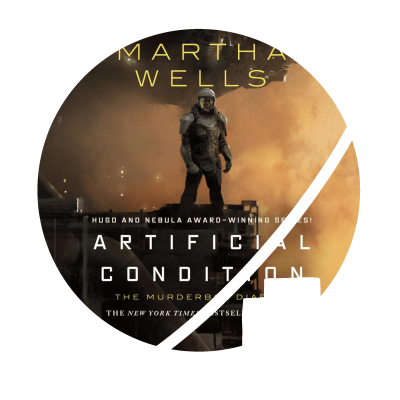

Listened to the audiobook with Kevin R. Free – as before, all right, but I was not too impressed with his performance.
I enjoyed All Systems Red, so when it finished, I immediately pressed play on the next story.
[ ‘Wait!’ you may cry, ‘then why are you only reviewing this story literally two years later?’ The honest answer is, I have had this review on the shelf for two years but I was waiting for Robin’s reviews, because she likes Murderbot a lot more than me. We were talking Murderbot today and it turns out she binge-listened to the whole series and is now unable to review any of them because she can’t tell them apart. Consider that a glowing review on her part. ]
To be honest, I thought Artificial Condition was a bit less interesting than the first instalment – mostly because we have already had the chance to get to know our main character, and I didn’t connect with them as much as I am finding out many people online did.
As with All Systems Red, I think what sets this story apart from other sci-fi is the way Wells describes the (mostly non-human) characters – the various bots, constructs, and automated programs – and their interactions. And Artificial Condition does indeed introduce or delve deeper into a variety of such robots. Alongside the Murderbot, the reader spends most of their time submerged in a sort of shadow world of feeds, programs and networks with the humans blissfully unaware of what is going on. Unfortunately, while this idea is conceptually interesting, Wells tends to handwave her way through any explanations of her systems without establishing clear rules, so that it feels like, for example, the Murderbot’s hacking capacity always functions exactly as the plot demands. Not that this story has a lot of plot – even more than with All Systems Red, Artificial Condition is carried by the personality of the Murderbot and the other machines it encounters.
And I think that was the main take away for me: I feel the Murderbot Diaries are a series of easy to read, none too deep sci-fi carried by the character of a (for many) relatable robot-human hybrid with social anxiety. If you love the Murderbot, read on; if you don’t… well – this may not be for you.
One final interesting note is that Wells seems to continue the GenZ-theme by slipping in the occasional woke reference – which may feel a bit forced, though I really appreciate that she embraces the enormous diversity in human culture that is bound to exist once we’ve become a multiplanetary species.
Tagged:
See also:
Time to get to know our Curators better! How? By asking them the questions that really matter! This time with another special New Year edition!
2024 is upon us, and we are once again trying to be better versions of ourselves! Let’s set goals and resolutions and reduce the piles of media that are still waiting to be consumed! That’s how it works, right?
In the spirit of the New Year, we asked ourselves:
What are your 2024 to read/watch/listen/play resolutions?
1. Dragon Age: Dreadwolf - BioWare
There is a trailer with a reveal date. Not a release date, per se, but still… it’s more than I had last year! A fool’s hope still counts for something. At least Gandalf thinks so, and that’s enough for me.
2. The Quest of the Ringbearer - Games Workshop
If my resolutions for 2022 taught me something, it’s much too risky to let your success depend on things that are out of your control. That’s why I choose to have two of such resolutions this year! If I fail this one, I’ll just blame Peter.
I have thought up my own ‘fantasy fellowship’, including an old Bilbo & Thorin, Éowyn & Faramir and Glorfindel and created a line up drawing to channel my excitement to see them in action. I’m somewhat afraid Peter will regret inviting me, because there is a reasonable chance that I’ll bother him with fanfiction of my fellowship when we’ve started playing in the beautiful scenery pieces he’s currently building.
3.Pick up writing and worldbuilding again
There’s a whole list of books I could put here, but I’m inspired by the creative resolutions of my fellow curators. In fact, it’s something I’ve wanted to do for a while, but didn’t get around to. Writing has always been very important for me, but due to some big changes in my life it didn’t get my attention the last few months. I’m okay with this, but now I miss it…
To make it easy for myself, I’m planning on starting with a few (very short) stories that revolve around specific worldbuilding tidbits. This will be more ambience scenes than narratives with plot, I believe, so nice and manageable? If I play my cards well, I might even combine it with drawing more. How’s that for a New Year’s resolution!
1.Legends & Lattes - Travis Baldree
From Peter’s description it sounds like a wild ride, and after just finishing He Who Drowned the World, I have to say I’m ready for something a little lighter. I’m hoping it will be as fun as I’m imagining.
2. Roam - Ryan Laukat
I got this game as a Sinterklaas present and to my shame I haven’t even gotten around to reading the rules yet. But I’m sure that once I do, it will be the perfect excuse for a cozy board game night.
3. Art challenge with Lotte
Lotte and I have just decided to do an art challenge to inspire each other to draw more, but we haven’t decided on the ‘rules’ yet. So if you have any ideas, let us know!
1. Learn to paint with an airbrush
As always, I have too little time to spend on hobbies, and as usual, that means I try to compensate by spending money instead. This year, my totally unnecessary purchase was… an airbrush!
I really don’t need it and I’m not sure why I spent the money on buying a thing that I need time (that I don’t have…) to get comfortable with, but I am hereby committing to actually trying to get used to it over the next year.
Who knows, I might actually be able to speed up my painting process (and finally put a dent in that backlog of unpainted plastic and resin).
2. Read a Warhammer Novel
Warhammer and Warhammer 40K have a lot of lore. Most of it is absolute trash, and that’s fine for a wargame: basically everything is just rule of cool and over the top, and that is expressed in absolutely ridiculous and cool minis on the tabletop.
Games Workshop (or more accurately, their proprietary publisher Black Library) sells tonnes of Warhammer novels, and so far I’ve mostly laughed at them. But I’ve been hearing from a couple of different people that some of them really aren’t that bad. So perhaps it is time – after playing with the minis for over two decades – that I finally give one of the books a go. Probably a Dan Abnett, I hear he’s decent.
3. Finish writing a story for once
I’m not nearly as serious a writer as Jop or Key are, but I have counted writing as one of my hobbies basically since I could write.
I’ve never been any good, and I’ve never really felt the drive to finish anything, seeing as I’ve really never felt like any of what I write is going anywhere. I see myself als a hobby and writing butterfly beyond redemption.
I think I may have only finished a story once, which is slightly shameful. So perhaps I should resolve to finish another one, and throw it out there, so that I’ll feel just that bit more encouragement to actually complete an arc.
1.Dragond Age: Dreadwolf - BioWare
Dragon Age 4 has finally been announced, and I am READY, baby! Dragon Age is possibly my all-time favourite franchise and I can’t wait for the next instalment. I’m also desperately hoping it won’t end up like Mass Effect: Andromeda.
2. Get back to doing art, specifically fantasy-themed
I barely drew anything last year, despite my resolution to do more fanart. This year, I really want to get back to doing art. One of the only pieces I drew last year was of a dragon sitting on a lantern in the rain, because I’d seen that exact scene from my window. Or rather, I saw a seagull sitting on a lantern in the rain and thought: “Wouldn’t it be rad as hell if a dragon sat on a little lantern?”. I love that piece SO SO much, but I haven’t even uploaded it because I just haven’t been thinking about art or my art Instagram. I had the dragon printed and have it framed on the wall, and I’d love to be able to put more stuff I’ve drawn myself on the walls around my apartment.
3. Take some good photos of my Howl’s Moving Castle Sophie cosplay
I made this cosplay for Elfia Haarzuilens this year, but it rained the entire day so I never really found the right moment to take some pictures. I don’t go to nearly as many conventions as I would like to, but I plan to wear the costume again at Elfia next year. After all, no one saw it last year because I wore a coat over it the entire day.
Happy New Year, folks!
Check out the reviews of related media here:
- Dungeons and Dragons Actual Play series
- Produced by Dimension 20 for Dropout.tv
- Released in 2023
- DM'd by Aabria Iyengar
- Starring Brennan Lee Mulligan, Siobhan Thompson, Rashawn Nadine Scott, Jasper William Cartwright, Erika Ishii and Isabella Roland

I feel like I say this for every Dimension 20 campaign I watch, but man, I think this is my new favourite campaign of the show. D20 just keeps getting better. From the stunning set design by Rick Perry and his team to the storytelling by the amazing Aabria Iyengar, everything about Burrow’s End just works. The premise is cute: a family of stoats having to flee their home. However, they soon discover that the world is scarier than they thought. The characters are varied in both personality and age, with Erika Ishii playing an elderly stoat, contrasted by Siobhan Thompson and Isabella Roland as excitable 8-year-olds. They’re all equally unhinged and I loved it.
The family dynamic in particular is what makes the season so good. It can be hard to start a story like this, where the characters have a long-established history. Often in D&D, the characters have just met and have the chance to get to know each other throughout the campaign. In Burrow’s End, we follow a family, with a pre-existing dynamic. Even though I know that the cast is amazing at improv, it still surprised me just how well they managed to set this dynamic up. The characters genuinely felt like a family.
Even though the season was incredibly funny, it was also surprisingly deep and scary. Aabria really has a way of setting up a story that is simultaneously hilarious and somehow deeply unsettling, and I love that. The stakes felt real, and the setting pulls from real history in a way that makes it easy for the players and the viewer to understand what was happening in a way that the characters wouldn’t fully grasp. This also made it incredibly fun to watch the players desperately try not to metagame when they put story threads together that their characters wouldn’t be able to yet.
With only ten episodes, Burrow’s End was quite short. Still, this meant that the pacing stayed fast. I do think the show may have benefited from a longer run. It would have given Aabria and the cast the time to work out some of the storylines that didn’t get tied up quite as nicely as one might have liked. Also, I would have just enjoyed watching more episodes of this show.
Tagged:
See also:
© 2023 – Escape Velocity – A Curated Collection of Fantasy and Science Fiction Media
Privacy Overview
| Cookie | Duration | Description |
|---|---|---|
| cookielawinfo-checkbox-analytics | 11 months | This cookie is set by GDPR Cookie Consent plugin. The cookie is used to store the user consent for the cookies in the category "Analytics". |
| cookielawinfo-checkbox-functional | 11 months | The cookie is set by GDPR cookie consent to record the user consent for the cookies in the category "Functional". |
| cookielawinfo-checkbox-necessary | 11 months | This cookie is set by GDPR Cookie Consent plugin. The cookies is used to store the user consent for the cookies in the category "Necessary". |
| cookielawinfo-checkbox-others | 11 months | This cookie is set by GDPR Cookie Consent plugin. The cookie is used to store the user consent for the cookies in the category "Other. |
| cookielawinfo-checkbox-performance | 11 months | This cookie is set by GDPR Cookie Consent plugin. The cookie is used to store the user consent for the cookies in the category "Performance". |
| viewed_cookie_policy | 11 months | The cookie is set by the GDPR Cookie Consent plugin and is used to store whether or not user has consented to the use of cookies. It does not store any personal data. |







